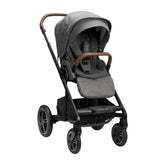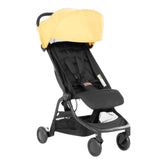A Parenting Dialogue: Should I Use a Reward System with My Child?

Honest question for my almost 2-year-old son: He is getting a good handle on communication and understanding simple phrases and commands and also telling us what he wants, like telling us to sit beside him at dinner (so cute!). My question is, how long should I use the reward system before I expect him to just do the things we tell him to? I get that he's only 2, but I'm afraid if we keep using rewards for making good choices or doing what we want him to do, then everything forever will be a barter exchange and not actual learned behavior. Any insight or advice would be lovely. Thanks!
--Frustrated Parent

The New Mom
Our child just started preschool this year, and they're still using a reward system at school as well as us at home. But they're at the age where we don't need to reward every individual action. We're able to use a sticker chart, and when they reach X number of star stickers on the chart, that's when they get the reward. The chart restarts every week. Stickers are given for good behavior, trying new foods, bedtime routines, listening, etc.
You could also use marbles in a jar if you don’t want to use stickers. Other toddler reward system ideas we’ve tried are making them their favorite dessert or offering a trip to the park or the zoo. But we only used those for building a specific skill, like staying in bed every night for a week.
-- Shawn, mother of one toddler
The Experienced Mother
I think just saying thanks is enough. Kids naturally want to please their parents. We used a lot of "You did it!" And "Thanks for listening!" We never, ever used a toddler rewards system with our kids. My feeling was that we all live in this house and participate in this life. Therefore, there are things we all need to do to coexist peacefully. We all have to clean up, and we all have to say “please” and “thank you.” This worked for all of my children who are now grown. To go watch a movie, we had to clean up first. In order to enjoy ice cream, we had to make sure all the dishes were done. That is the way our home functioned. I never understood rewards for basic life skills. We are all partners in this. There is no need to make it more complex. We are all people coexisting.
And what if your 2-year-old doesn't follow directions? You're bigger than he is. Make it happen anyway, lol! I don't mean that you have to be hateful about it. But you just make it happen. Tell him to go upstairs for bedtime, and if he doesn't? You count to 3 to give him a chance, then if he still won't, you just pick him up and take him upstairs. Won't pick up a dropped toy? You count to 3 and then you hand-over-hand him picking it up. Do this enough, and they learn that they don't have a choice of whether that thing is going to happen. They only get a choice in how it's going to happen.
There are other little tricks you can try to get compliance out of young children, like offering them reasonable choices. Like, instead of "Will you put on your shirt?" ( to which they say can say no), you say, "Are you putting on the red shirt or the blue shirt?" They get so distracted choosing which one that they forget that none was a choice too-- the choice you didn't want them to make.
-- Katie, mom of four grown children
The Pediatricians' Approach
According to the American Academy of Pediatrics, rewards can be a valuable tool for encouraging positive behavior in middle childhood, especially when specific behavior goals are well-defined. They suggest using the following approaches:
- Create a behavior chart detailing the desired behaviors and the relevant times or situations. This chart should span a week or a longer period, with daily ratings of the activities or goals. Determine the points earned for each instance of positive behavior, and keep a summary of total points. For younger children, tokens like paper stars work well, while older children respond better to point or contract systems. Small rewards can be given at the end of each day or week, while more substantial rewards should be saved for longer periods or higher point achievements. Display the chart prominently to provide positive reinforcement and instill a sense of pride.
- Make a list of rewards tied to specific point thresholds. Involve your child in selecting meaningful rewards, and be clear about the number of points or the duration of changed behavior required to earn them.
- Stay closely engaged with your child's progress, keeping their enthusiasm high by reinforcing positive behavior as frequently as possible.
- Use the behavior chart as a measure of success, avoiding humiliating penalties or demerits that might discourage your child from trying. Instead, opt for mild punishments like timeouts if necessary.
As children internalize good behavior, AAP advises that parents gradually phase out the reward program. At this point, they typically lose interest or no longer seek points as a motivator.
The Holistic Approach
Jan Hunt, M.Sc., director of The Natural Child Project and author of The Natural Child: Parenting from the Heart, offers a more holistic approach to encouraging positive behavior that doesn’t rely on rewards systems. She says that extrinsic rewards distract a child's attention away from intrinsic ones. The child may never understand the true reasons for doing a task, and consequently, may never understand the inherent rewards that a task will provide. For instance, a child who reads a book in order to earn a sticker from their teacher may miss the point that reading is fun all on its own.
Instead, she argues parents should encourage a child to stay focused on the intrinsic rewards when learning a new task. External rewards (whether stickers, gifts, good grades, or even words of praise) don’t necessarily have a direct relationship with the skill you’re trying to help your child build. She says it’s more effective to concentrate on the rewards inherent in doing the task. For instance, in order to teach a child the importance of keeping their room clean, parents should focus on helping them appreciate the built-in rewards of doing so. This may include things like finding lost toys, avoiding tripping over clutter, feeling better (especially if there are dust allergies), and the peaceful feeling of being in an orderly environment.

The Bottom Line
Understanding the available toddler reward systems is crucial in making the right choice for your child's temperament and behavior. Each child is distinct, and as a parent, you are the best judge of your child's needs. Reward systems can be particularly effective for goal-oriented tasks like potty training or getting your toddler to stay in bed at night. However, if you have any concerns about your child's behavior, seek guidance from their pediatrician or healthcare provider.









